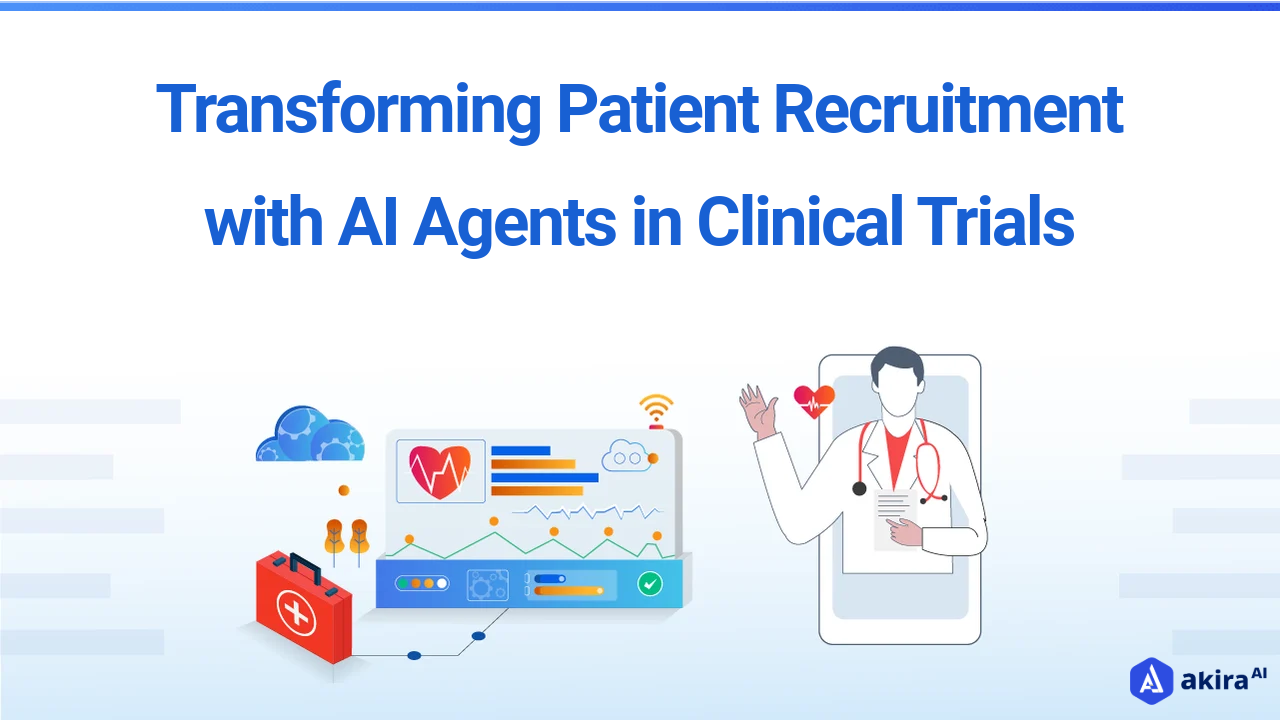How can hospitals turn their asset management challenges into opportunities? The answer lies in AI-driven asset tracking. Managing healthcare assets—such as medical equipment, devices, and supplies—has always been a challenge, but with the help of AI agents, hospitals can now easily streamline these processes. AI systems drastically reduce downtime and improve operational efficiency by automating tracking, predicting maintenance needs, and ensuring real-time availability.
These smart-systems help save costs by preventing unnecessary replacements and improving resource allocation. In this blog, we will explore how AI in healthcare revolutionises hospital management, allowing hospitals to optimize asset usage, increase productivity, and provide better care with less waste.
What is Asset Tracking and Management?
Asset tracking and asset management in healthcare refers to the processes involved in monitoring and maintaining the physical assets that a healthcare facility relies on to deliver care. These assets include everything from medical equipment and devices to office supplies, medications, and hospital infrastructure. Proper asset tracking ensures that items are available when needed, in the right condition, and at the right location, which is crucial for effective healthcare delivery.
Hospital asset management is the broader system that encompasses the processes, tools, and strategies used to manage these assets throughout their lifecycle—from procurement to disposal. Historically, hospitals relied on manual systems or basic asset-tracking software to oversee these assets. However, with the complexity and scale of modern hospitals, traditional methods no longer meet the needs of the healthcare sector, leading to a rise in AI-driven asset-tracking solutions.
Key Concepts of Asset Tracking and Management
To understand how Agentic AI is revolutionizing asset tracking in healthcare, it's essential to grasp the basic concepts behind asset management systems and asset tracking solutions.
Asset Identification and Tracking: The first step in any asset tracking system is identifying and labeling assets. Healthcare asset tracking often uses RFID (Radio Frequency Identification) tags, barcodes, or GPS tracking devices to help hospitals keep track of their inventory.
Asset Utilization and Optimization: With the help of AI in hospitals, real-time data analytics can be used to optimize asset utilization, ensuring that equipment is not overused or underused, thus reducing waste.
Lifecycle Management: An asset management system helps track the lifecycle of an asset from procurement to maintenance and eventual disposal, enabling hospitals to predict when equipment will need servicing or replacement.
Preventative Maintenance: AI solutions can predict when an asset is likely to fail or require maintenance, reducing downtime and ensuring that critical equipment is always operational.
Asset Reporting and Compliance: Hospitals must meet stringent regulatory standards, and asset tracking in healthcare ensures that the hospital's equipment is compliant with safety regulations, often generating reports for audits and inspections.
Traditional Way of Optimizing Asset Tracking and Management
Hospitals once relied on manual methods like spreadsheets and basic asset-tracking software, leading to inefficiencies in hospital asset management. These outdated systems made it difficult to optimize operations and ensure patient care.
-
Manual Inventory Checks: Hospitals relied heavily on physical inventory checks to manage assets before AI. Staff would walk through storage rooms, operating rooms, and equipment areas to verify the presence and condition of equipment. This process was time-consuming and prone to errors, especially with larger inventories.
-
Use of Spreadsheets for Tracking: Hospitals often tracked assets using spreadsheets, which were manually updated by staff. While spreadsheets could help organize asset information, they lacked real-time data updates. They were vulnerable to human error, making it difficult to keep track of large inventories and equipment statuses.
-
Manual Search for Missing Equipment: When equipment went missing, hospital staff had to physically search through multiple departments to locate the items. This inefficient approach could result in delays, especially if high-demand equipment like surgical tools or life-saving devices went missing during critical moments.
-
Limited Maintenance Monitoring: Routine checks on equipment to assess whether it was functioning properly were often left to the staff's discretion or performed only after equipment failures occurred. This reactive approach to maintenance led to costly breakdowns and unplanned downtime for critical medical devices.
-
Insufficient Tracking of Expiration Dates: Hospitals had to manually track the expiration dates of medical supplies, medications, and consumables. Expired items could inadvertently be used without automated tracking, leading to patient safety concerns and wasted resources.
Agentic AI-driven Electronic Medical Records (EMRs) are transforming healthcare by enhancing accuracy, efficiency, and patient care. With agentic AI, healthcare providers can streamline workflows, reduce errors, and make faster, informed decisions, ultimately improving patient outcomes. Click to discover how AI is reshaping the future of healthcare.
Impact on Customers Due to Traditional Processes
Traditional asset tracking inefficiencies directly impacted patient care and hospital operations, causing delays and higher costs. Issues like missing equipment and expired supplies strained staff and negatively affected the quality of service provided.
-
Delayed Medical Procedures: Missing or misplaced equipment delays medical procedures, causing longer patient wait times. This directly impacts patient satisfaction and can result in a higher stress level, especially in emergencies where time is critical.
-
Compromised Patient Outcomes: The lack of efficient asset management can make critical equipment unavailable when needed. For instance, the unavailability of an MRI machine or malfunctioning equipment could delay diagnosis or treatment, compromising patient health and outcomes.
-
Increased Operational Costs: Without an effective system in place, hospitals often purchase duplicate equipment or run out of essential supplies. This wasteful spending leads to increased operational costs that could have been avoided with a more efficient asset management approach.
-
The strain on Hospital Staff: Manual tracking processes divert staff resources from direct patient care. Nurses and technicians spend time managing inventory rather than assisting patients or providing hands-on care, which can lead to reduced productivity and burnout among hospital staff.
-
Resource Diversion from Patient Care: Traditional asset management requires significant time and attention from hospital management, as staff have to focus on resolving asset-related issues like missing equipment, expired supplies, and failed devices. This diversion of resources from patient care impacts overall hospital efficiency and effectiveness.
Akira AI: Multi-Agent in Action
Akira AI leverages a multi-agentic system where various AI agents collaborate to optimize hospital asset management. The system is coordinated by a master orchestrator, ensuring efficient task execution and seamless operations.
-
Master Orchestrator: The Master Orchestrator oversees the workflow of these agents, ensuring that they communicate and collaborate effectively to achieve the hospital’s goals, from inventory management to predictive maintenance and compliance.
-
Asset Tracking Agent: The Asset Tracking Agent is responsible for tracking the location and condition of hospital assets. It utilizes RFID tags or GPS systems to provide real-time data about the assets’ whereabouts.
-
Maintenance Agent: The Maintenance Agent monitors the health of the assets and uses predictive analytics to determine when an asset will require maintenance or is about to fail. It works in tandem with the asset tracking agent to ensure downtime is minimized.
-
Inventory Management Agent: Responsible for tracking inventory levels, the Inventory Management Agent ensures that supplies are restocked on time. It predicts demand based on usage patterns and ensures that the hospital does not run out of essential supplies.
-
Compliance Agent: The Compliance Agent ensures that all equipment meets regulatory standards. It helps hospitals maintain compliance by tracking the necessary certifications and safety checks for medical equipment.
Prominent Technologies in Asset Tracking and Management
AI technologies are now pivotal in transforming hospital asset management and asset tracking in healthcare. By integrating AI solutions with hospital systems, healthcare facilities can automate and streamline asset tracking, improving operational efficiency and patient care.
AI-driven analytics process large volumes of data, predict asset failures, monitor asset location, and ensure compliance with safety standards. Agentic AI in healthcare allows for the real-time tracking of medical devices, optimizing equipment utilization, and reducing the likelihood of asset failure through predictive maintenance.
Key technologies include
-
RFID Technology: RFID technology enables real-time tracking and identification of hospital assets, allowing for more efficient management and quicker equipment location.
-
Computer Vision: Computer vision is used to monitor and track inventory visually, significantly improving the accuracy of asset management by detecting items in real-time.
-
IoT (Internet of Things): IoT (Internet of Things) connects hospital assets, allowing for remote monitoring of equipment to ensure it is functioning properly and available when needed.
-
Machine Learning Algorithms: Machine learning algorithms predict when equipment will require maintenance or replacement, helping reduce downtime and improve operational efficiency.
Agentic AI is reshaping the landscape of early diagnosis, especially in fatal diseases, by leveraging powerful algorithms, real-time monitoring, and comprehensive data analysis. Source: AI Agents in Healthcare: Pioneering Early Detection of Fatal Diseases.
Successful Implementations of AI Agents in Healthcare
Several asset-tracking companies have already successfully implemented AI-driven asset-tracking systems in hospitals, leading to significant improvements in operations.
1. Cognosos
Cognosos provides AI-powered asset-tracking solutions specifically designed for hospitals. Their system allows real-time tracking of medical devices and equipment, addressing critical equipment availability and loss issues. Hospitals utilizing Cognosos have reported:
-
-
-
30% reduction in equipment downtime
-
20% reduction in inventory costs
-
-
Cognosos' technology operates on a dedicated low-latency network, separate from hospital Wi-Fi, ensuring secure and efficient tracking. Their solutions include automated alerts for equipment movement and room-level visibility, enhancing operational efficiency and clinical care.
2. Link Labs
Link Labs has also made strides in healthcare asset management with its AI-driven systems. Their implementations have led to:
-
-
-
40% reduction in lost assets
-
50% improvement in inventory management
-
-
These results highlight the effectiveness of Link Labs' technology in enhancing operational efficiency within hospitals, although specific case studies or detailed statistics were not provided in the sources.
Future Trends: How AI Agents Supersede Other Technologies
As AI technology evolves, future trends suggest that AI agents will be crucial in revolutionizing hospital management and asset tracking. Here are some key developments to look forward to
-
Predictive Maintenance with AI: As AI technology evolves, machine learning algorithms will enable hospitals to predict equipment failures before they occur, allowing for timely maintenance and reducing unplanned downtime.
-
Automating Operations and Workflows: AI agents will automate more hospital processes, such as scheduling preventative maintenance, monitoring real-time patient data, and managing workflows, improving overall efficiency and reducing human error.
-
AI-Enhanced Asset Tracking: Future AI systems will integrate seamlessly into hospital management systems, providing advanced asset-tracking solutions that offer real-time updates and ensure equipment availability when needed most.
-
Personalized Patient Care: Agentic AI will work alongside healthcare professionals to optimize patient care by ensuring that the right medical equipment, devices, and supplies are available at the right time, providing a more tailored healthcare experience.
-
Integration into a Fully Connected Ecosystem: AI will integrate asset tracking with other hospital systems, creating a connected healthcare ecosystem where equipment, workflows, and patient data are all linked. This will allow for smarter decision-making and better operational coordination.
Conclusion: AI Agents for Asset-Tracking Management
In summary, AI in hospitals is making asset management easier, more efficient, and smarter than ever before. With tools like multi-agent AI systems, hospitals can track their assets more effectively, reduce waste, and keep everything running smoothly. This saves time and money and ensures patients get the best care possible. As the healthcare industry continues to embrace AI solutions, we’ll see even more improvements in hospital management—making the future of healthcare bright and tech-driven.
Explore More Predictive Maintenance for Hospital Equipment


